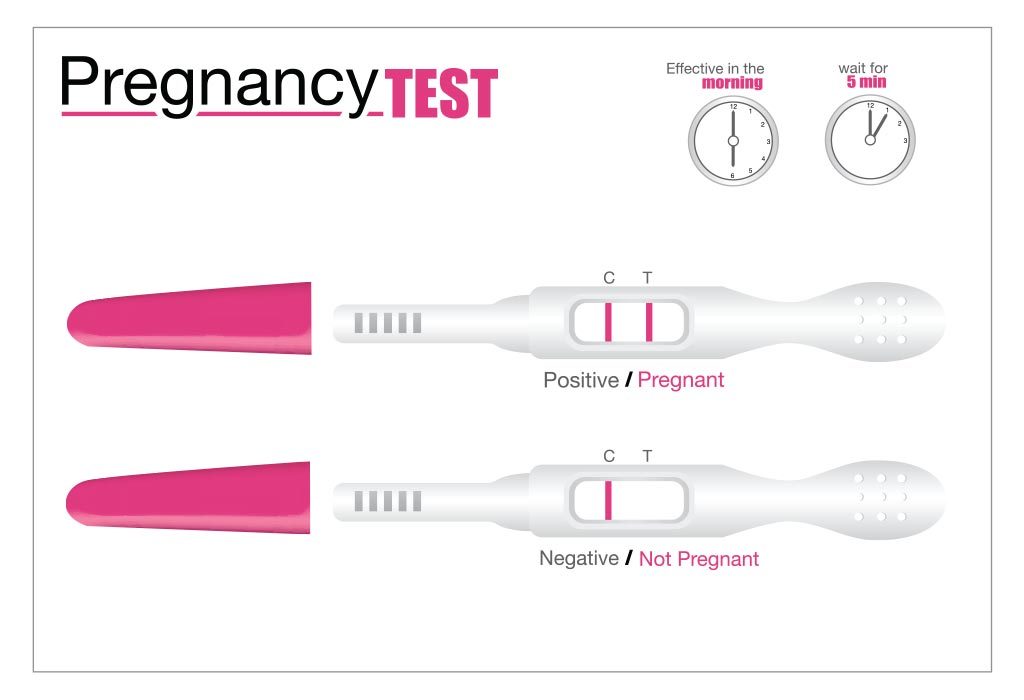In this Article
Of the millions of pregnancies that end in miscarriages every year, less than twenty per cent are actual pregnancies, whereas the others are known as chemical pregnancies. This means that the pregnancy was terminated before it was detected or confirmed. However, sometimes after a miscarriage, women might continue to have pregnancy symptoms such as morning sickness. In this case, they might be convinced to take a pregnancy test. This article will explain what it means if you get a positive pregnancy test after going through a miscarriage.
Can a Pregnancy Test Show a Positive Result After a Miscarriage?
As strange as it sounds, a positive pregnancy test is actually possible after a miscarriage. However, in almost all cases, this is a false-positive result.
Common Causes of False-Positive Test After Pregnancy Loss
Here are some of the common causes of a false-positive test after loss of pregnancy.
1. Presence of hCG Hormone
hCG is continuously produced by the placenta during pregnancy and is responsible for maintaining the early development of the foetus. However, since miscarriages are usually sudden, the shock to the system requires some time to reset. During this period, hCG might still be produced and can result in a positive pregnancy test.
2. Incomplete Miscarriage
In some cases, miscarriages may be incomplete. That is, a fragment of the ovum might still be in the uterus. This scenario may also lead to a false-positive result. A positive pregnancy test 8 weeks after miscarriage indicates that it was incomplete.
3. Molar Pregnancy
A rare condition known as molar disease or molar pregnancy can be the reason for a false positive on the pregnancy test. This condition is a type of gestational trophoblastic disease and is of two types. In a complete molar pregnancy, the embryo or normal placental tissue is absent. In a partial molar pregnancy, the embryo and normal placental tissue are present, but the embryo is abnormal and malformed. Molar pregnancies have dangerous complications, including cancer, and necessitates immediate treatment.
Other Possible Causes of Getting a Positive Test After a Miscarriage
Some other reasons why you would get a positive test after a miscarriage are,
- It is possible to become pregnant again if you have been sexually active the time after a miscarriage, especially in the first menstrual cycle. In this case, you could have a truly positive pregnancy test, but it requires confirmation with blood tests.
- Certain medical drugs could also lead to a positive pregnancy test, such as Pregnyl or Profasi, as these drugs contain hCG.
- Kidney disease can be a cause, due to the secretion of protein into the urine.
What to Do if a Pregnancy Test is Positive After a Miscarriage?
Ideally, you should cross-check by taking the pregnancy test using strips from different companies. Next, you can ask your doctor for a blood test, which measures the absence or presence of the hCG hormone in your body, and also the current level it is at. This test should be performed approximately two weeks after the miscarriage. In very rare situations, a pregnancy test still positive after a miscarriage could mean that you had a multiple pregnancy, where only one embryo was miscarried, but the other is still alive.
FAQ’s
1. What Does a Positive Pregnancy Test 12 Weeks After Miscarriage Mean?
A positive pregnancy test around 12 weeks after a miscarriage is almost certainly because you are pregnant again. However, this only applies if you are sexually active and aiming to conceive.
2. How Long Will a Pregnancy Test Be Positive After a Miscarriage?
The standard operating principle of a pregnancy strip is visual. Once you have urinated on it, the appearance of one line means you are not pregnant, while two lines mean you are. Since modern pregnancy strips are very accurate, they can show a positive result even weeks after a miscarriage due to the minuscule amounts of hCG circulating in the body.
 3. When Can You Get Pregnant After Having a Miscarriage?
3. When Can You Get Pregnant After Having a Miscarriage?
Getting pregnant after a miscarriage is not difficult. In fact, the likelihood of pregnancy immediately after a miscarriage is only lowered by five per cent. In the past, it was believed that becoming pregnant within six months of a miscarriage was linked to complications like stillbirth and toxaemia. However, modern studies show that there is no risk associated with pregnancies immediately after having a miscarriage.
If pregnancy tests show a positive result consistently after you have undergone a miscarriage, the best thing to do is seek your doctor’s recommendation. In most cases, this is a false positive test and will have no complications. However, as explained in the article, there are some rare possibilities that can have a severe impact on your health. Getting a thorough examination is essential. Further, if you observe continuous bleeding, vaginal discharge, fever or pelvic aches, consult your doctor, as this might indicate an infection.









